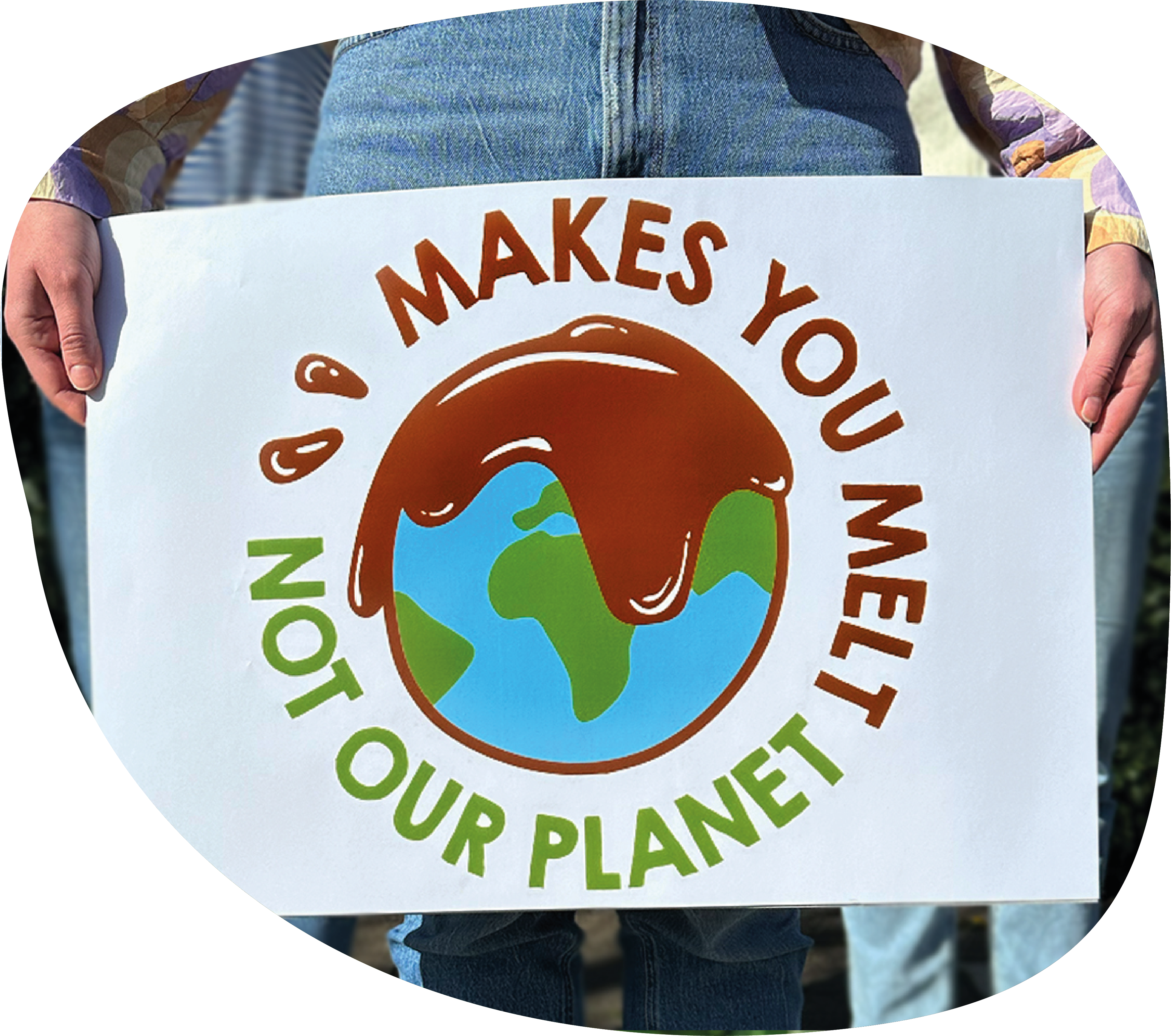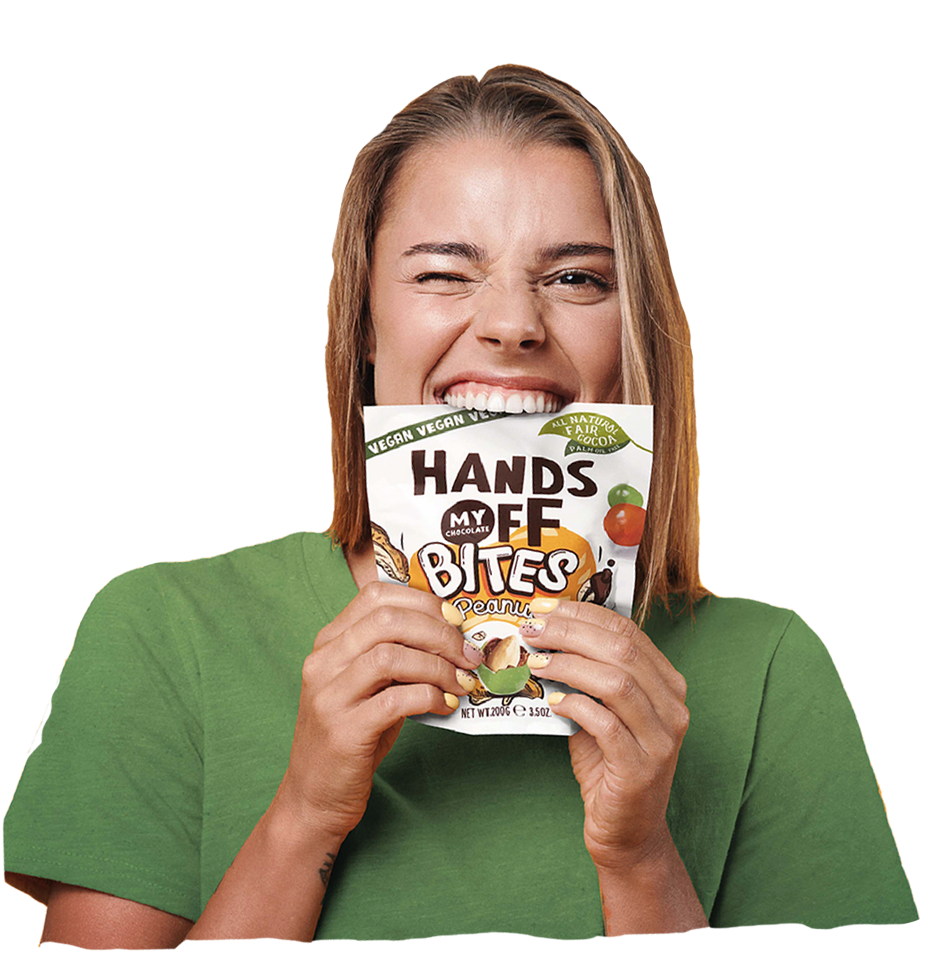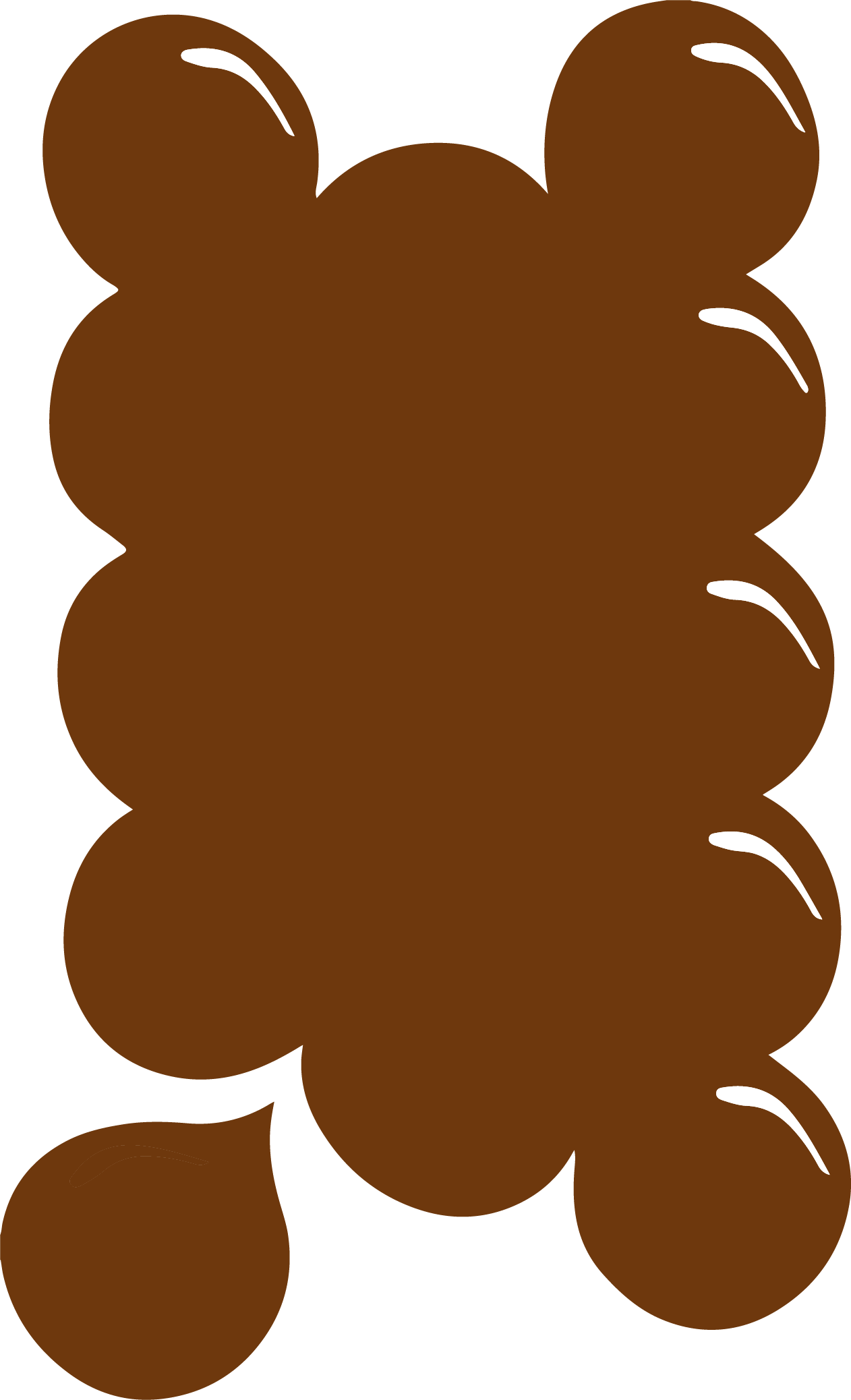FAIR
CHOCOLATE
Chocolate only really tastes great if you know that your choco cravings contribute less to warming up of our planet. That is why we fight for chocolate that does not melt the earth. We make the most delicious plant-based chocolate and work together with cocoa farmers to combat deforestation.
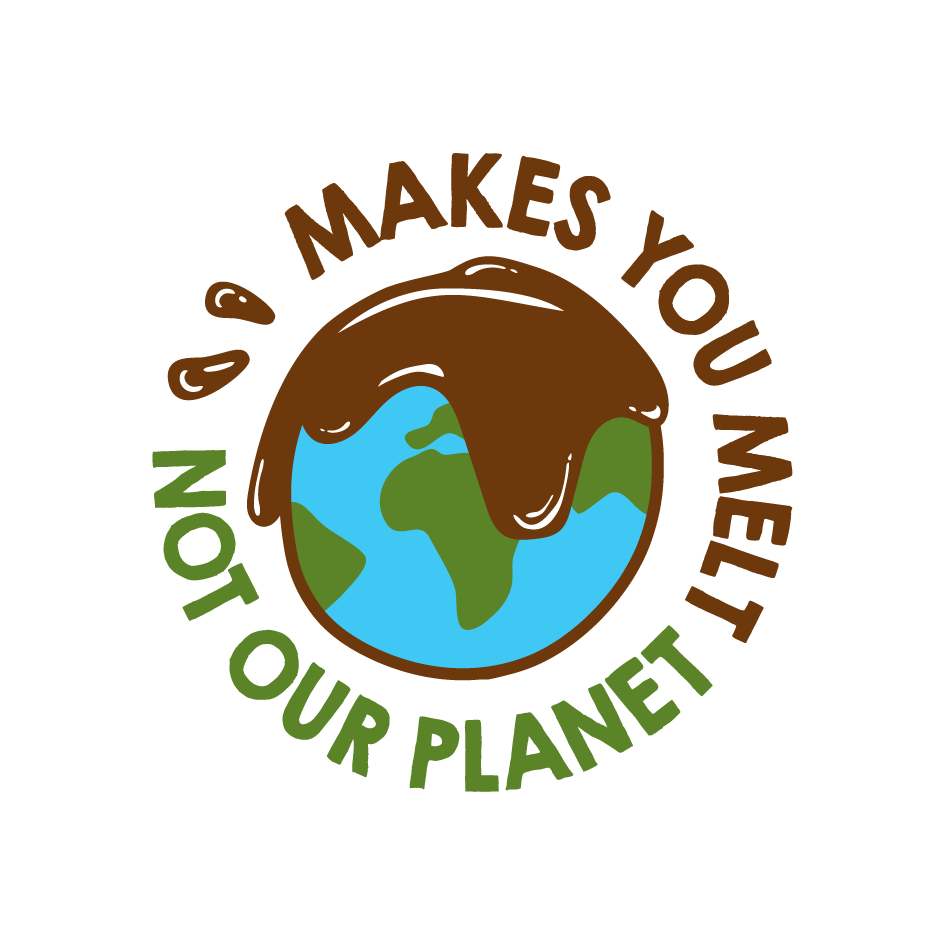
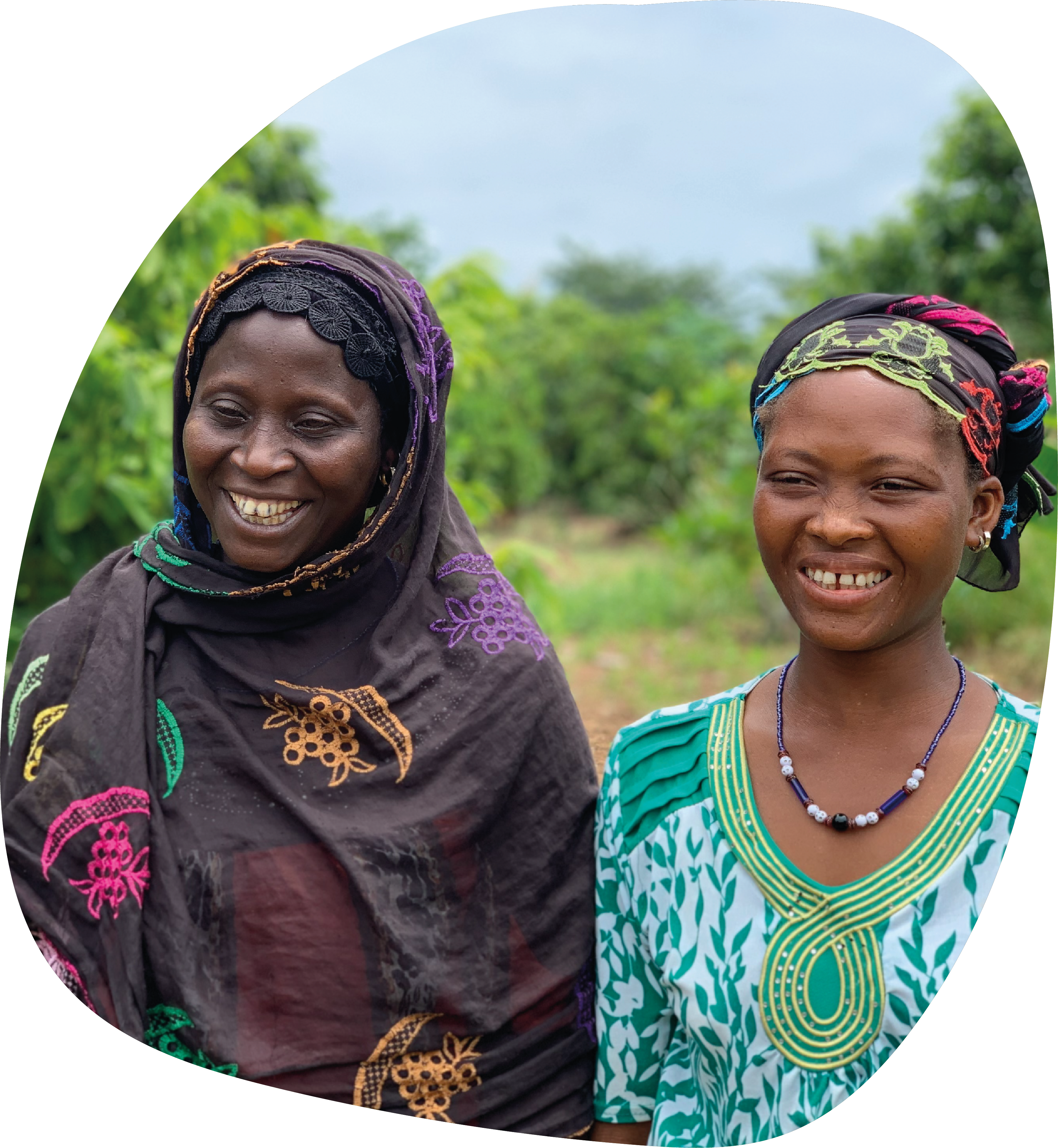

We support...
… the Cocoa Horizons Foundation. Cocoa Horizons is an impactful program dedicated to improving the quality of farm life in Ghana and Ivory Coast. The program focuses on increasing farmer productivity and improving farming communities. The farmers receive a premium price for the cocoa beans. In addition, we empower farmers by training them and help them build farming communities that are good for the future, children and nature. We work together with 85 cooperatives in West Africa. More than 100,000 farmers have already joined these cooperatives. Because we work with so many farmers, we can make a lot of impact.
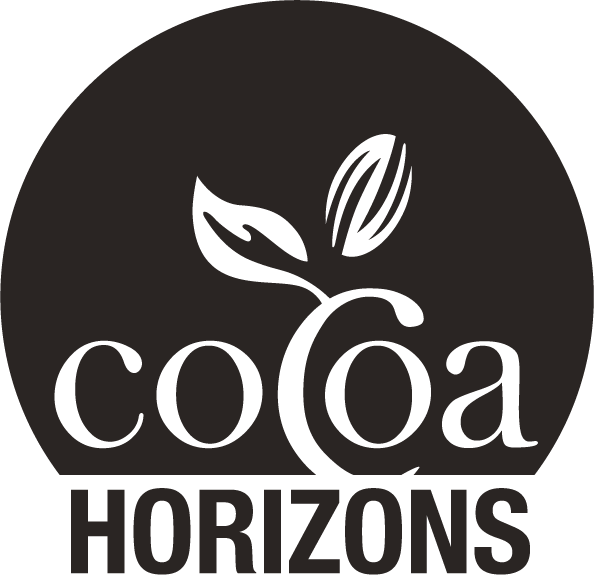
EMPOWERING FARMERS
Farmers receive training to improve the productivity of their plantations, so that future generations can continue to live from growing cocoa. They are taught by specially established Farmer Field Schools. Last year there were more than 600 of these schools and about 85,000 farmers received training.
For example, they learn how to prune the cocoa trees. It seems illogical to prune away healthy branches that still produce cocoa. Still, this helps to improve the quality of the cocoa tree. During the training, the farmers see with their own eyes the positive effect of pruning. Thanks to these trainings and the practical skills that the farmers learn, they can get more out of their land and become financially stronger.
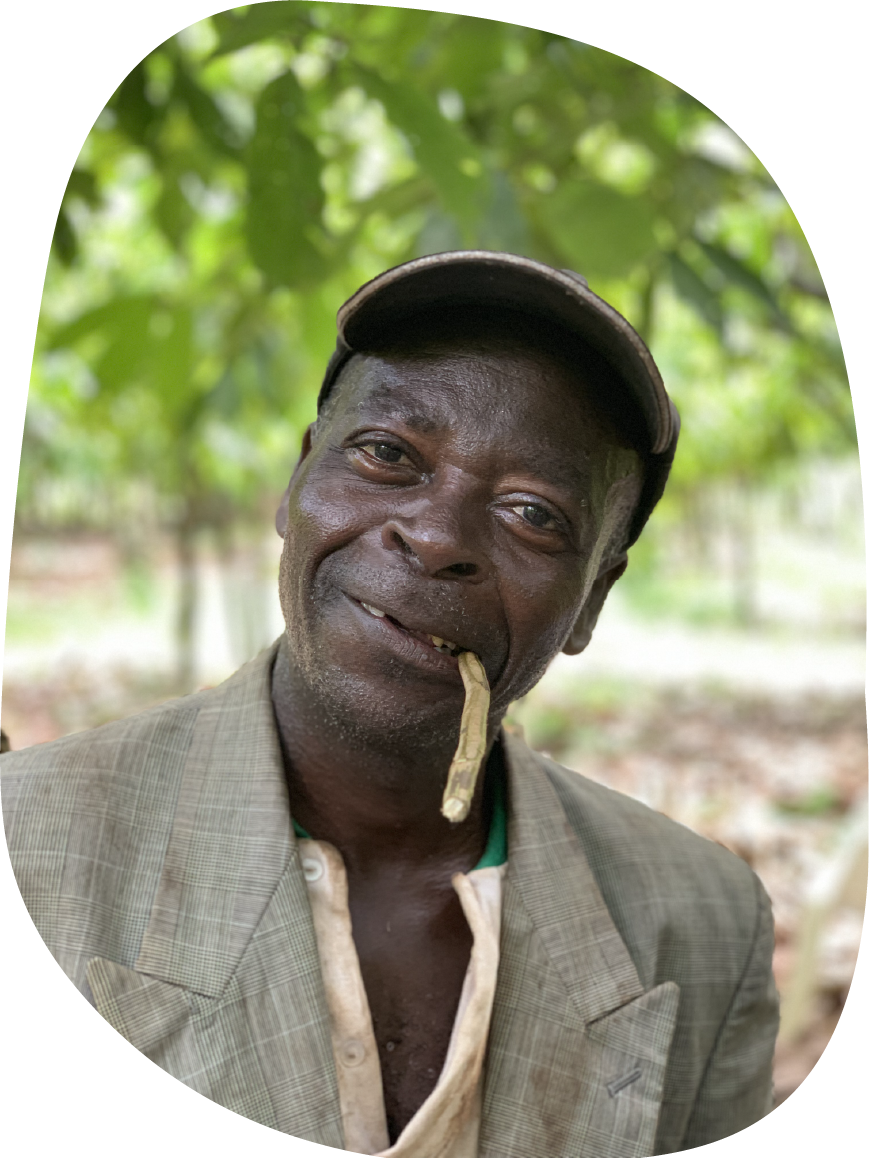
Kuadio Bonaventure
Kouadio increased his production thanks to the training he received. In fact, his cocoa plantation was doing so well that he was able to hire two people who now work for him.
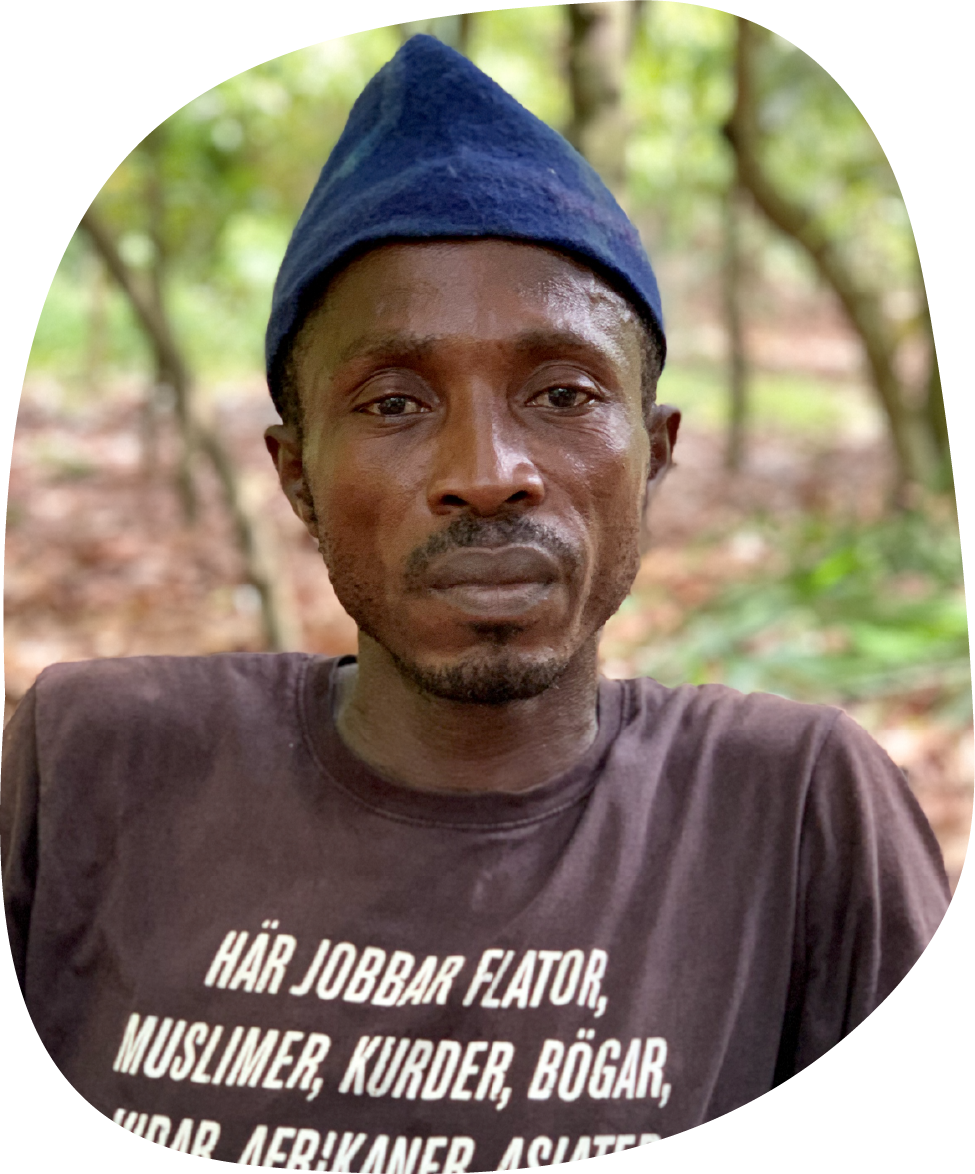
Brou Alfred
Brou managed to double his income thanks to his better farming practices. He bought a bicycle with the extra money, so that he no longer has to walk to work.
Registered COH farmers
Farmers graduated from COH academy
Of farmers above the poverty line
Farmers received a farm business plan
Farmers received a productivity package
Women empowerment
There is still a lot of inequality between men and women in Ghana and Ivory Coast. Female cocoa farmers are in the minority, only about 5% of cocoa farmers are women. We believe it is important to give women a voice and to increase their self-confidence and independence. Our program educates women in smart farming practices and financial management. They learn to grow cocoa and other crops on their own land. Thanks to these trainings and the proceeds from their land, the women can become financially independent and take better care of their families.
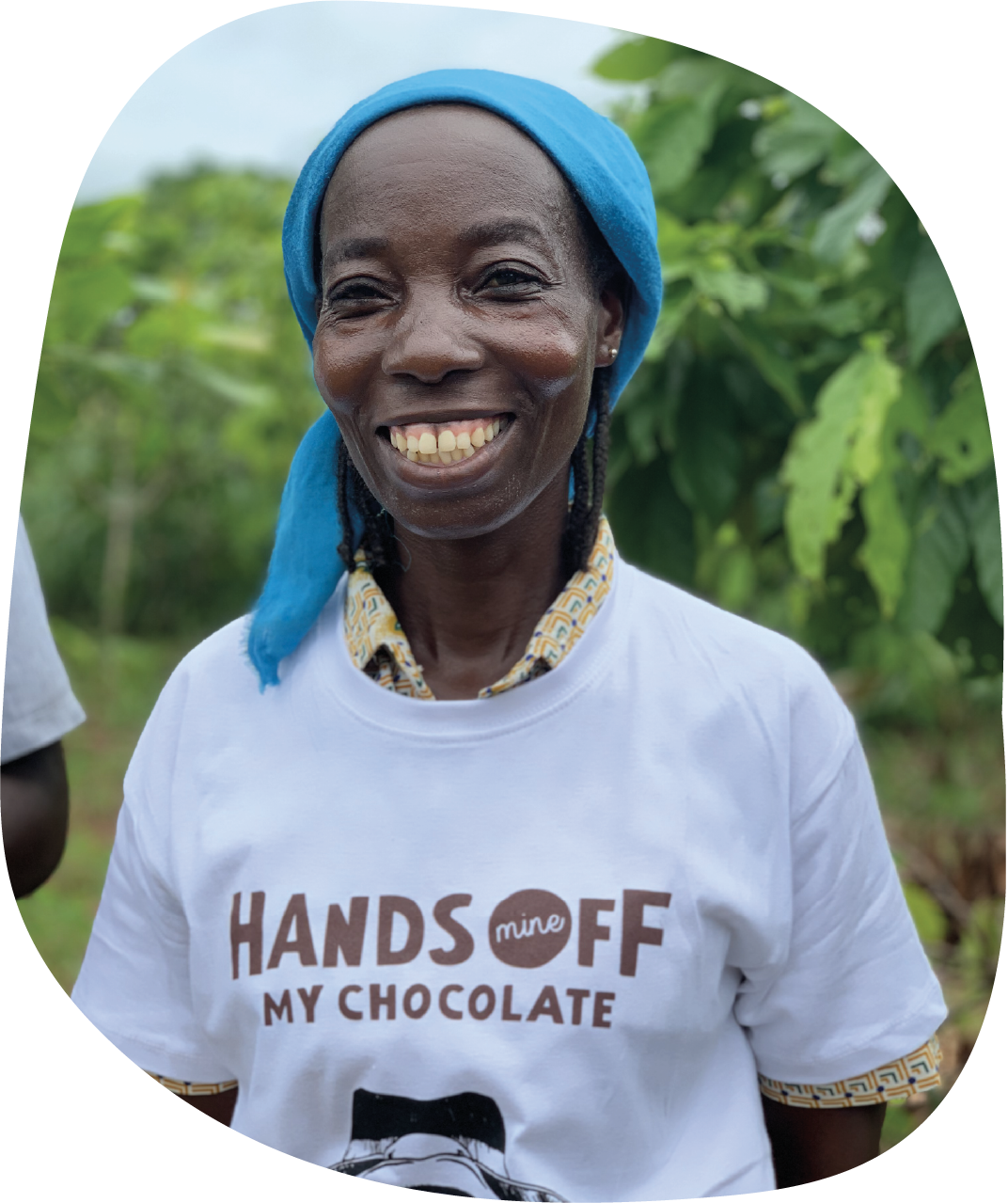
Henriëtte
Female farmer Henriëtte stands her ground in the cocoa world. She received a piece of land from her husband and started growing her own crops here. She received training and support in setting up her own plantation. Now she teaches other women and helps them realize their entrepreneurial dreams by becoming self-employed cocoa farmers.
CHILDREN TO SCHOOL
In addition to increasing the income of farmers and women, education is an important part of strengthening farming communities. If children can go to school, they do not have to do forced or heavy work on the plantations and they have more opportunities in the future. We help the children to get a chance to go to school. Checks are carried out to determine that no child labor takes place on the plantations. If this does happen, we look at how this can be resolved together with the parents. We also help to realize training in areas where this is not yet sufficiently available. For example, we build schools and classrooms, but also canteens, toilets for boys and girls and housing for teachers in order to attract good teachers.
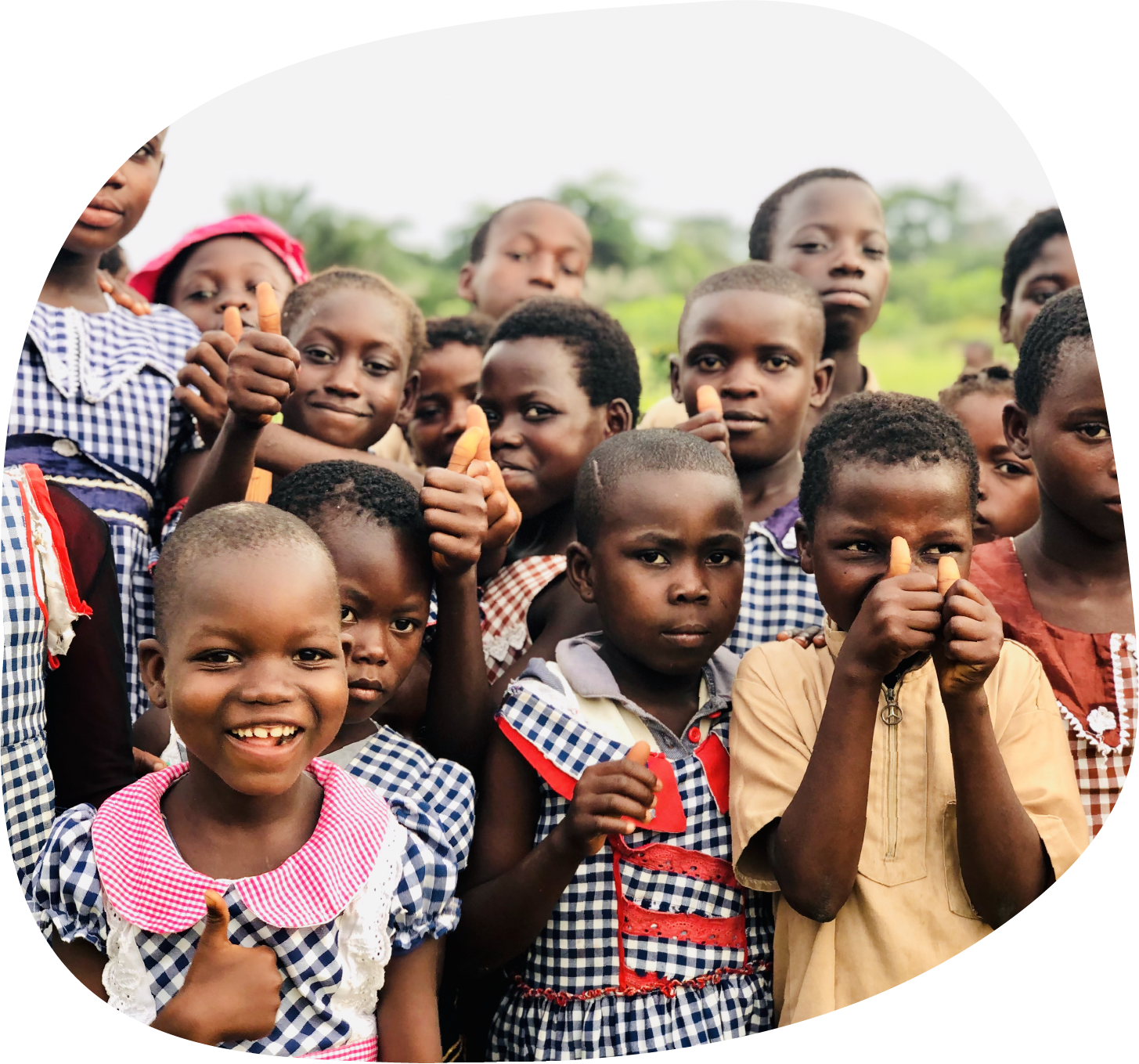
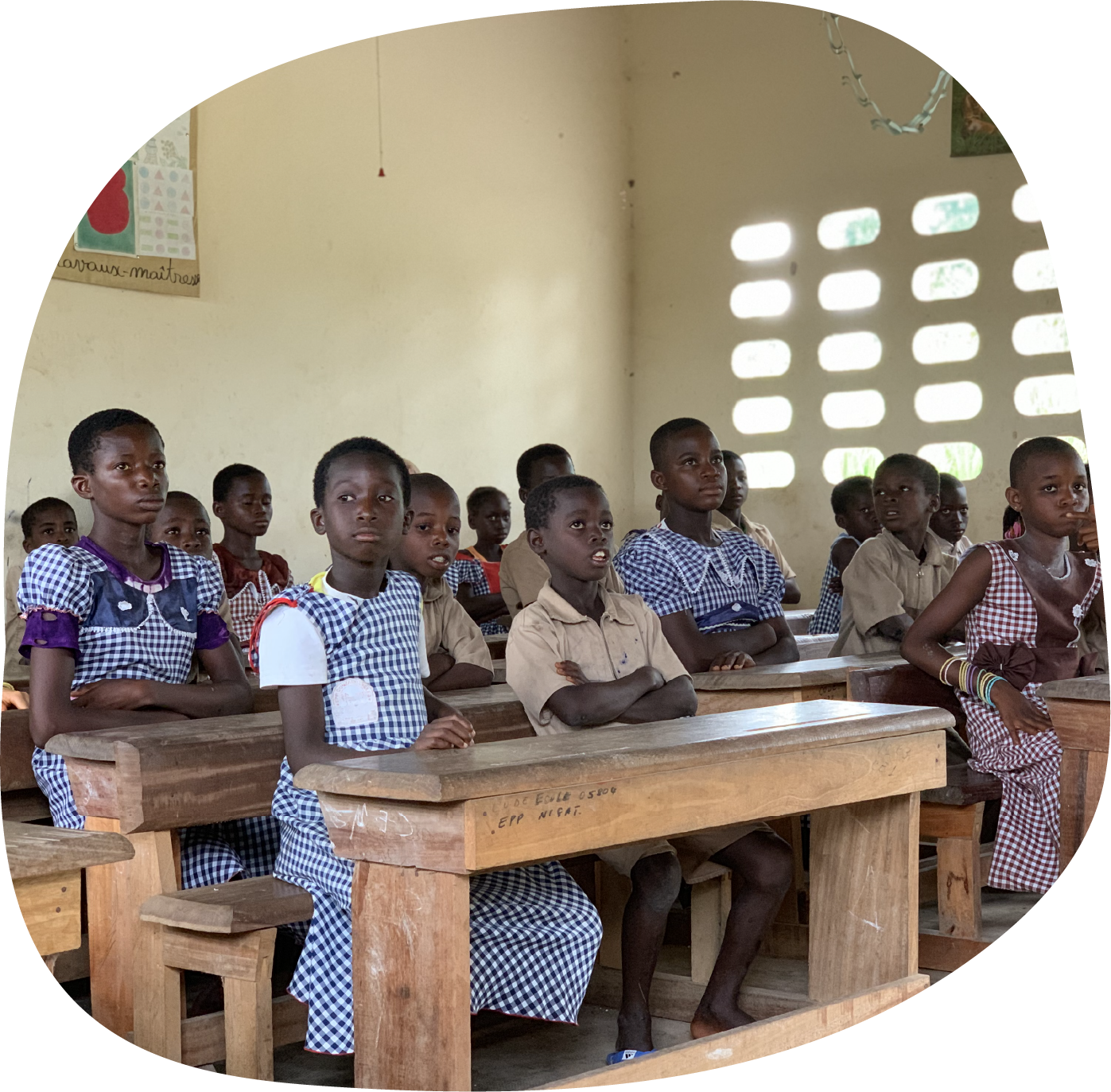
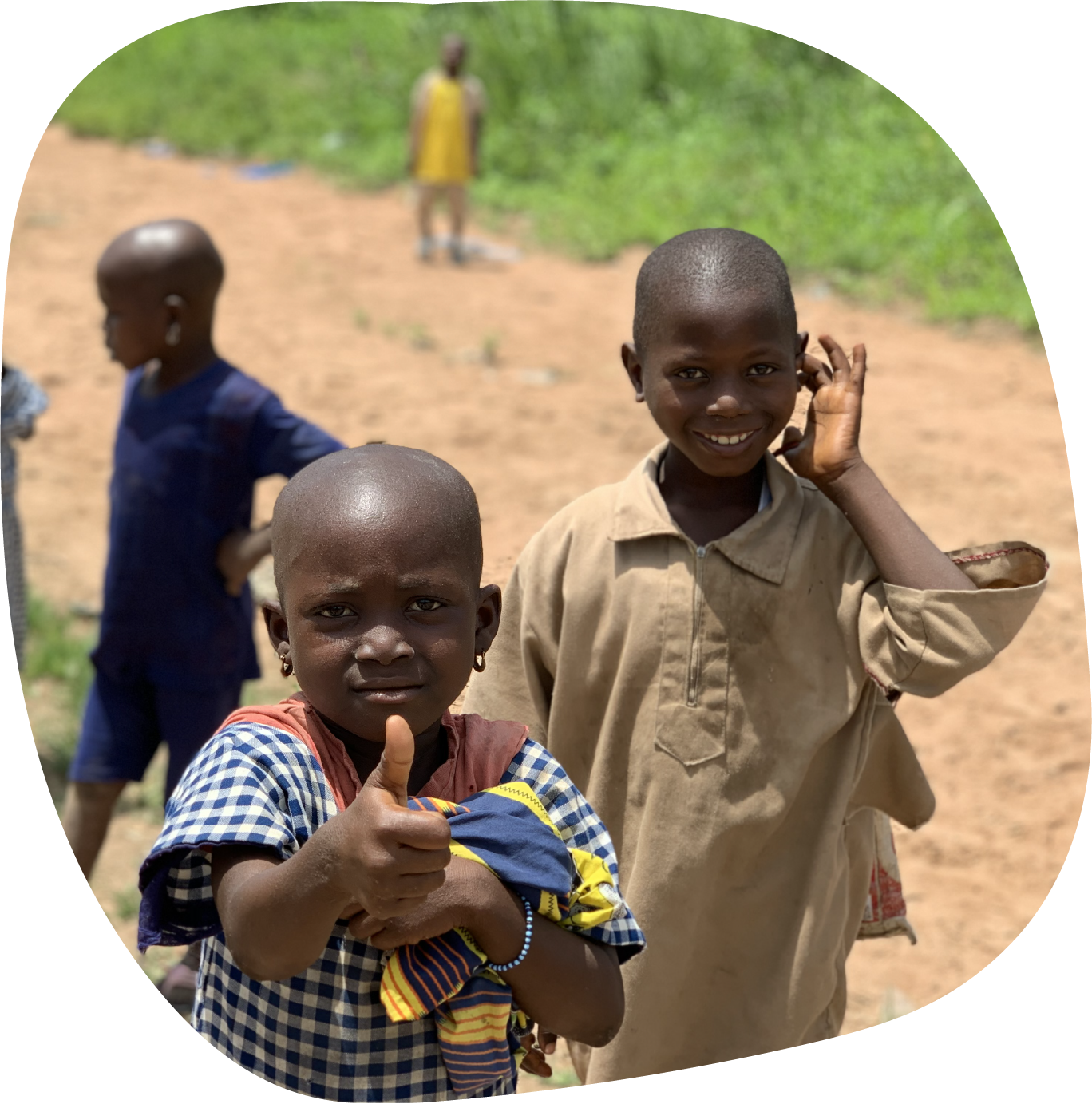
Cases of child labor under remediation or resolved
Households assessed for child labour
Of farming communities in CLMRS or equivalent
SUSTAINABLE AND ENVIRONMENTALLY FRIENDLY AGRICULTURE
In addition to empowering farmers, we also encourage sustainable and environmentally friendly agriculture. When the productivity of the farmers is increased, the need for extra land decreases, which reduces deforestation. To be part of our program, farmers must not have carried out deforestation on their farms since 2005. In addition, we map the entire landscape, so that the boundaries between farms and nature areas are clear. We also encourage environmentally friendly agricultural practices and work with farmers to reduce CO2 emissions.
